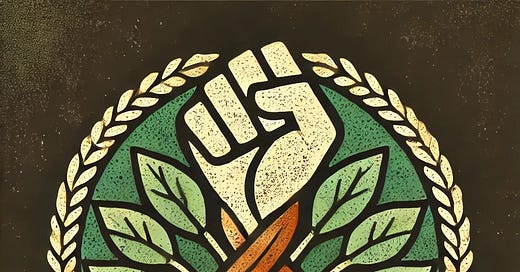By Christina D.
I don’t call myself a healer.
Not because I haven’t spent years doing the hard work—therapy, shadow work, ceremony, grief, letting go, starting again. I’ve sat in silence, I’ve howled into pillows, I’ve stared into the fire of my own unhealed parts and dared to not look away. But still, I don’t claim the title. Because “healer” is not a role I want to wear like a brand. It’s not a thing you buy. It’s not an aesthetic. It’s a process. It’s a path. One we walk barefoot, bruised, and real.
But lately, healing has started to look more like a curated feed than a lived experience.
You know what I’m talking about. The rise of the spiritual influencer. Linen pants, curated altars, softly lit sound baths, sacred geometry tattoos, palo santo smoke curling through filtered air. “Healers” with perfect branding and nothing beneath it. They know the language of trauma, of ancestors, of plant medicine—but not the substance.
Let me be clear: none of these things are inherently wrong. I love candles. I use herbs. I sit with sacred tools that have guided me through some of the darkest places in my life. But the tools are not the work. They’re just tools. Symbols. Not the substance.
The substance is the tear-streaked face. The apology that cracks your pride in half. The years it takes to unlearn survival mechanisms and show up fully. The way your body shakes when you finally release the shame you’ve carried since childhood. The conversations that make your throat tight. The accountability. The discomfort. The loss. The mystery. The deep, ugly, beautiful truth.
The commodification of healing is just another layer of avoidance. It lets us look the part without ever going inward. And it’s everywhere now—retreats priced higher than rent, certifications handed out in a weekend, people marketing themselves as gurus while avoiding their own shadows.
There’s a reason it sells. Because healing is hard. And the illusion of it is easier to swallow than the real thing. It’s easier to buy a candle than to sit in the dark. It’s easier to post a quote than to live by it.
But if you’re here, reading this, maybe you’ve felt it too. That quiet ache. That knowing. That the real work is invisible. It doesn’t need a title. It doesn’t need an audience.
It just needs you. Honest. Present. Willing.
So no, I don’t call myself a healer.
I call myself someone who’s learning how to live fully, love deeply, grieve honestly, and walk this world with integrity. Someone who still stumbles. Someone who keeps going.
Healing is not an aesthetic. It’s an act of rebellion.
And in this world of noise and branding, doing the real work—raw, unpolished, unseen—is the most sacred thing I know.
Sources:
bell hooks, All About Love
Audre Lorde, “The Uses of the Erotic”
Sobonfu Somé, Falling Out of Grace
adrienne maree brown, Emergent Strategy
Personal lived experience and observations
Christina D. is a writer, editor, and grassroots journalist based in Georgia. She publishes fact-based policy updates, historical analysis, and local investigations at the intersection of agriculture and activism.
Subscribe for updates and more reporting at Agriculture & Activism



https://substack.com/@tzikhit/note/c-120353042?r=5784vh
Healing doesn’t occur on social media. You are so right about how personal it is. Sitting with someone and being present without judgement or expectation has been therapeutic for me over the years.